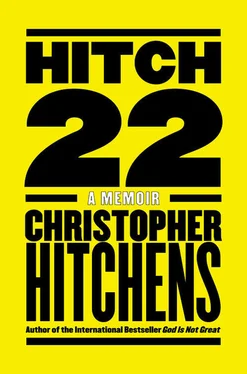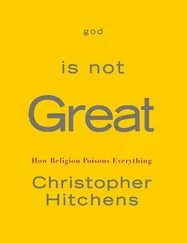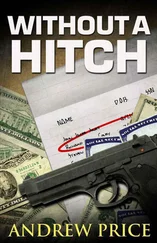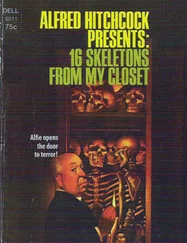For the anomic, Cesare Pavese almost certainly provided the best text by observing drily enough that “no one ever lacks a good reason for suicide.” And Alvarez furnishes self-slaughterers with the kindest epitaph by writing that, in making death into a conscious choice: “Some kind of minimal freedom—the freedom to die in one’s own way and in one’s own time—has been salvaged from the wreck of all those unwanted necessities.”
I once spoke at a memorial meeting for an altruistic suicide: the Czech student Jan Palach, who set himself on fire in Wenceslas Square in Prague to defy the Russian invaders of his country. But since then I have had every chance to become sickened by the very idea of “martyrdom.” The same monotheistic religions that condemn suicide by individuals have a tendency to exalt and overpraise self-destruction by those who kill themselves (and others) with a hymn or a prayer on their lips. Alvarez, like almost every other author, gets “Masada” wrong: he says that “hundreds of Jews put themselves to death” there “rather than submit to the Roman legions.” In fact, religious fanatics who had been expelled even by other Jewish communities first murdered their own families and then drew lots for the exalted duty of murdering one another. Only the very last ones had to settle for killing themselves.
So, divided in mind once more, I often want to agree with Saul Bellow’s Augie March who, when rebuked by his elders and enjoined to conform and to “accept the data of experience,” replies: “it can never be right to offer to die, and if that’s what the data of experience tell you, then you must get along without them.” Yet my next subject is a man who for a long time braved death for a living and would have been perfectly willing to offer to die in a cause that he considered to be (and that was) larger than himself.
The Commander

He loved me tenderly and shyly from a distance, and later on took a naïve pride in seeing my name in print.
—Arthur Koestler:
Arrow in the Blue
I heard the news today, Oh Boy.
The English army had just won the war.
—The Beatles:
Sergeant Pepper : “A Day in the Life”
AN ANCIENT PIECE of Judaic commentary holds that the liver is the organ that best represents the relationship between parents and child: it is the heaviest of all the viscera and accordingly the most appropriate bit of one’s guts. Only two of the six hundred and thirteen Jewish commandments, or prohibitions, offer any reward for compliance and both are parental: the first is in the original Decalogue when those who “honor thy father and thy mother” are assured that this will increase their days in the promised or stolen Canaanite land that is about to be given them, and the second involves some convoluted piece of quasi-reasoning whereby a bird’s egg can be taken by a hungry Jew as long as the poor mother bird isn’t there to witness the depredation. How to discern whether it’s a mother or father bird is not confided by the sages.
Commander Eric Ernest Hitchens of the Royal Navy (my middle name is Eric and I have sometimes idly wondered how things might have been different if either of us had been called Ernest) was a man of relatively few words, would have had little patience for Talmudic convolutions, and was not one of those whom nature had designed to be a nest-builder. But his liver—to borrow a phrase from Gore Vidal—was “that of a hero,” and I must have inherited from him my fondness, if not my tolerance, for strong waters. I can remember perhaps three or four things of the rather laconic and diffident sort that he said to me. One—also biblically derived—was that my early socialist conviction was “founded on sand.” Another was that while one ought to beware of women with thin lips (this was the nearest we ever approached to a male-on-male conversation), those with widely spaced eyes were to be sought out and appreciated: excellent advice both times and no doubt dearly bought. Out of nowhere in particular, but on some unusually bleak West Country day he pronounced: “I sometimes think that the Gulf Stream is beginning to weaken,” thereby anticipating either the warming or else the cooling that seemingly awaits us all. When my firstborn child, his first grandson, arrived, I got a one-line card: “glad it’s a boy.” Perhaps you are by now getting an impression. But the remark that most summed him up was the flat statement that the war of 1939 to 1945 had been “the only time when I really felt I knew what I was doing.”
This, as I was made to appreciate while growing up myself, had actually been the testament of a British generation. Born in the early years of the century, afflicted by slump and Depression after the First World War in which their fathers had fought, then flung back into combat against German imperialism in their maturity, starting to get married and to have children in the bleak austerity that succeeded victory in 1945, they all wondered quite where the years of their youth and strength had gone, and saw only more decades of struggle and hardship still to come before the exigencies of retirement. As Bertie Wooster once phrased it, they experienced some difficulty in detecting the bluebird.
It could have been worse. My father’s father, the stern Alfred Ernest Hitchens, was a mirthless Calvinist patriarch who took a dim view of everything from music to television. The old man’s forebears hailed from the backlands of Thomas Hardy’s Wessex and perhaps even farther west—Hitchens being in its origin a Cornish name—and my brother possesses ancestral birth and marriage certificates that are “signed” with an “X” by the peasants who were most probably recruited into Portsmouth to help build the historic dockyards.
Portsmouth. The true home port of the Royal Navy, and nicknamed “Pompey” (as is its soccer team) by those locals for whom no other town will do. It is one of the world’s most astonishing natural harbors, rivaling even Valletta in the way that it commands the Channel approaches to the Atlantic and the North Sea, and it looms over the French coast while sheltering in the lee of the Isle of Wight, which the conquering Romans once named Vectis. The last place that Horatio Nelson set foot on dry land, and to this moment the home of his flagship the Victory . The birthplace of Charles Dickens and the home of Rudyard Kipling and Arthur Conan Doyle. Here I drew my first squalling breath on 13 April 1949, and here my male ancestors embarked time and again to slip down the Channel and do the King’s enemies a bit of no good. My grandfather had been a ranker in the army in India, and was to the end of his days only softened in his general puritan harshness by his warm affection for that country, expressed in a collection of Benares brasses that competed for space in his home with the biographies of forgotten missionaries.
I still have an oil painting, almost my only family heirloom, which depicts a blue-eyed, rosy-cheeked ten-year-old boy in a white collar and blue bow-tied suit. This promising lad is looking into the distance and arguably being instructed to think of his country’s destiny. In my own youth, I was made to stand next to this frame while older relatives remarked on the distinct resemblance I bore to “Great-Uncle Harry.” The boy in the frame was indeed my great-uncle, acting as the model for an exhibition called “Young England” in 1900. Fifteen years later his cruiser was shattered and sunk at the Battle of Jutland (“There seems to be something wrong with our bloody ships today,” as Admiral Beatty commented on seeing yet another vessel burst its boilers and go sky-high) yet he survived in the bitter North Sea waters and is said to have saved the shivering Maltese mess-steward while quietly letting the bar-bills sink unpaid to the bottom.
Читать дальше












